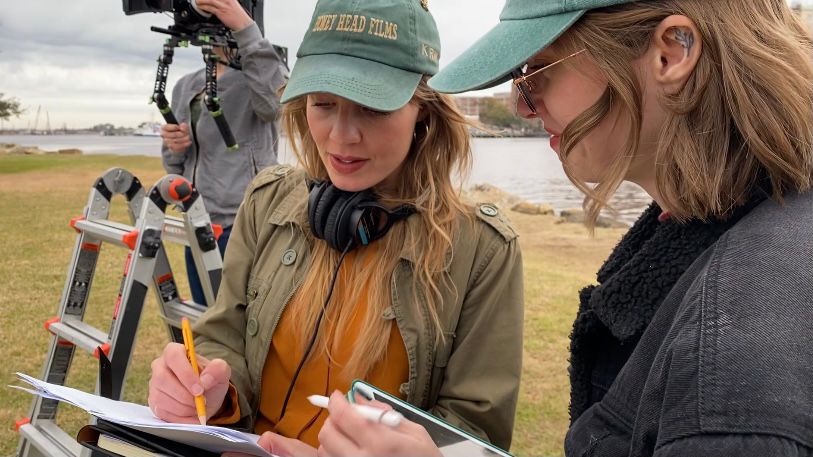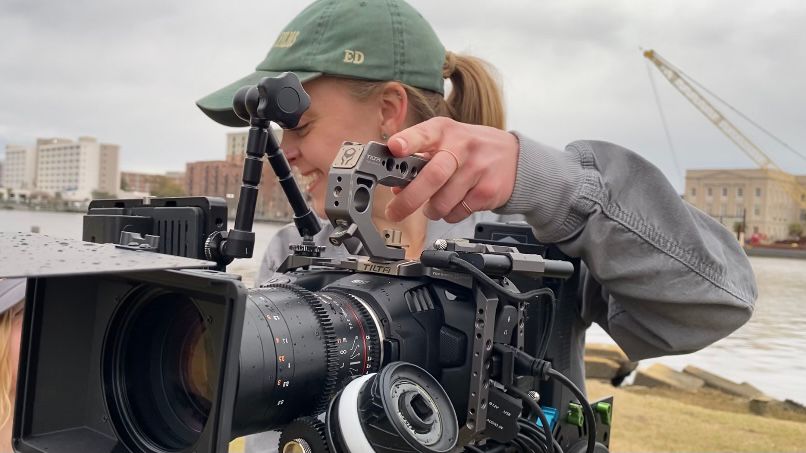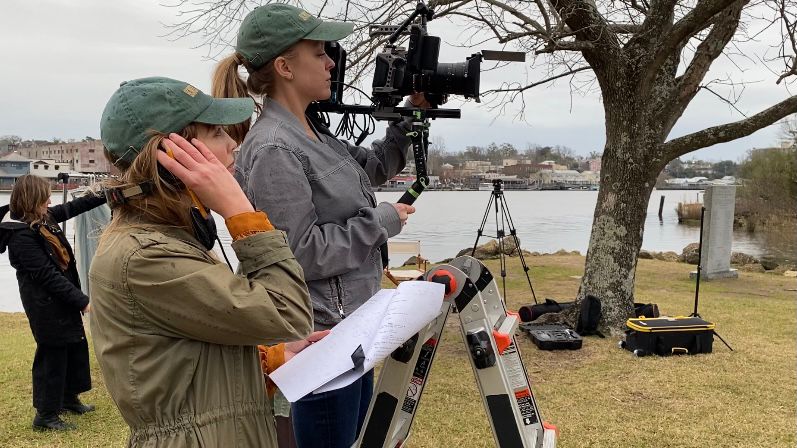WILMINGTON, N.C. — One of Wilmington's major claims to fame is its film industry, yet with so many people employed, just a fraction of them are women, and those women who do work in film are rarely behind the camera.
What You Need To Know
When Honey Head Films was founded in 2016 only 14% of creatives in the film industry were women
Today women account for just 25% of key behind-the-scenes roles
Honey Head Films is Wilmington's only female production company
Wilmington's first female film production company opened its doors in 2016, but in the six years that have followed no others have joined the ranks.

“Erika and I being self-taught filmmakers came to the table with a lot of grit and a lot of perseverance and decided we don't need to wait around for permission, for someone to give us an opportunity,” said Kristi Ray, a co-founder of Honey Head Films. “We should create those opportunities for ourselves and for the women that we're working with.”
Erika Edwards and Ray founded Honey Head Films with no experience in the film industry beyond being in front of the camera as actresses. They saw a male-dominated world that didn't offer women the opportunity to take on behind-the-scenes production roles and launched their own company with the determination to make female stories just as common as male ones.

“We're not trying to compete with men or replace them,” Edwards said. “We just want there to be a seat at the table for women because their stories, our stories are equally as important.”
They started out with narrative short films, commercials and music videos, but come this summer they'll be in the process of producing their first full-length feature film, which exceeds even their own expectations.
“There's no blog, there's no book, there's no roadmap or blueprint, it's just hard work, some grit and believing and staying true to your voice,” Edwards said.
The dream has become reality for them, but it's still a lonely world for female filmmakers — their mission is focused on changing that.
“There should be equal access to both sides of the story,” Ray said. “Women make up half of the human race. Why shouldn't we be paying attention to the way that they see the world?”
They didn't have the advantage of seeing themselves represented in creative roles, but because of them, the next generation of female filmmakers already has a leg up.
“I'm living both of my dreams, but I get to create opportunities for other people to achieve their dreams as well,” Ray said. “Erika always talks about gatekeeping and what it really means to be a woman in the industry is to hold the gate open once you get through it and reach down and help the other young women who are coming up behind you.”

The implicit bias that comes with film is like many other industries which have been historically dominated by men. It comes with the territory, and it's an automatic assumption they aim to correct every time they step onto a set.
“Even now it feels like there's still a lack,” Edwards said. “But we want to change that. That's what we're inspired to do is be a part of empowering young women to believe they can do it by seeing other women do it.”



